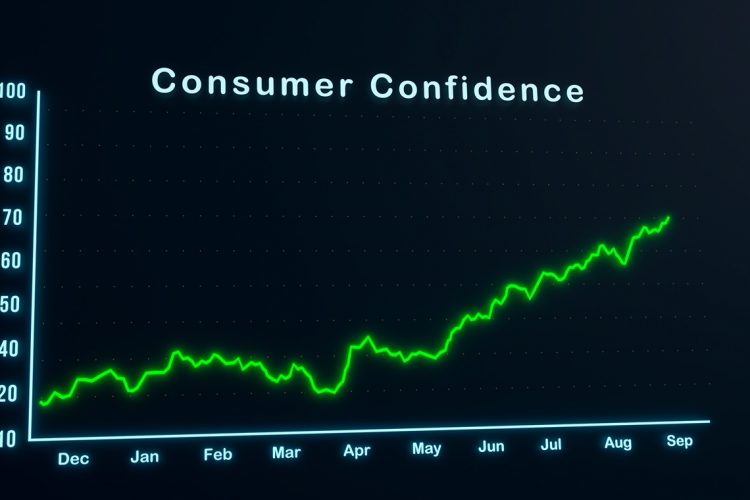After hitting a two-year high last month, consumer confidence fell in February to 106.7, down from a revised 110.9 in January, according to the latest data from The Conference Board.
“The decline in consumer confidence in February interrupted a three-month rise, reflecting persistent uncertainty about the U.S. economy,” said Dana Peterson, chief economist at The Conference Board. “The drop in confidence was broad-based, affecting all income groups except households earning less than $15,000 and those earning more than $125,000. Confidence deteriorated for consumers under the age of 35 and those 55 and over, whereas it improved slightly for those aged 35 to 54.”
The Present Situation Index—based on consumers’ assessment of current business and labor market conditions—fell back to 147.2 in February from 154.9 in January.
Peterson added: “February’s write-in responses revealed that while overall inflation remained the main preoccupation of consumers, they are now a bit less concerned about food and gas prices, which have eased in recent months. But they are more concerned about the labor market situation and the US political environment.”
The Expectations Index—based on consumers’ short-term outlook for income, business, and labor market conditions—slipped to 79.8, down from a revised 81.5 in January. An Expectations Index reading below 80 often signals recession ahead.
“Consumer expectations for the next six months deteriorated in February, driven by renewed pessimism regarding future business and labor market conditions,” Peterson continued. “Consumers were also a bit less optimistic about their family financial situation over the next six months. Additionally, consumers’ Perceived Likelihood of a US Recession over the Next 12 Months picked back up after falling over the previous three months.”
As for consumers’ short-term business conditions outlook, 14.8% expect business conditions to improve (down from 16.7% in January), and 15.5% expect business conditions to worsen, down from 16.0%, the report stated. For the labor market outlook, 14.7% of consumers expect more jobs to be available, down from 15.6% in January, and 17.3% anticipate fewer jobs, up from 16.7%. For short-term income prospects, 16.9% of consumers expect their incomes to increase, down from 17.1% in January., and 11.3% expect their incomes to decrease, down from 12.5%.
“Average 12-month inflation expectations ticked down further to 5.2 percent in February,” Peterson concluded. “After peaking at 7.9 percent in mid-2022, expected inflation has now fallen to its lowest level since March 2020, when it stood at 4.5 percent. This aligns with continued slowing in consumer price inflation in government reports and fewer complaints about food and energy prices in our survey.”
For the full report, visit: https://www.conference-board.org/topics/consumer-confidence.












